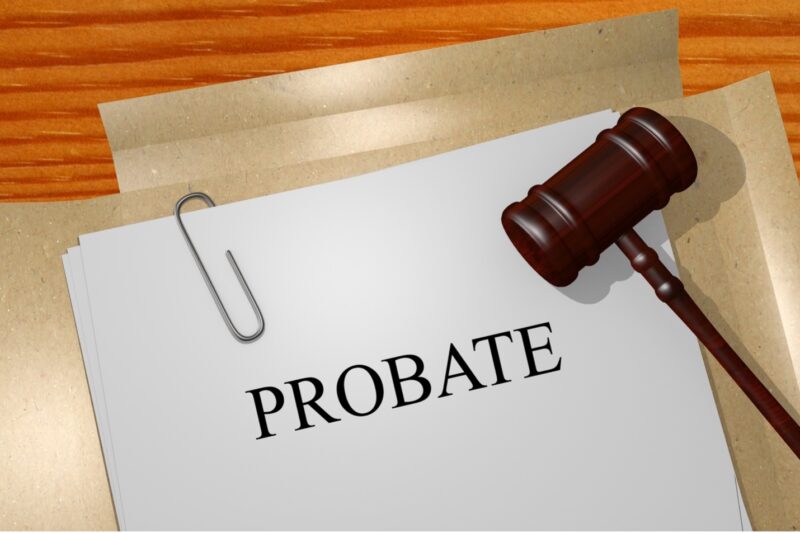If you have recently lost a loved one, you may be grappling with difficult emotions, such as grief and trepidation about the future. Depending on the estate planning previously done, you and your family may be able to go through the probate process in a seamless fashion. However, if legal problems arise, probate litigation may provide a pathway for you to seek accountability and equity. If you want to know more about probate litigation, consider contacting a knowledgeable San Francisco probate lawyer from Von Rock Law by calling (866) 720-0195.
What Is Probate Court?
According to the California Courts, probate court provides the process through which a person can inherit property from another person. Probate court is also a forum to redress problems with Last Wills and Testaments (wills), trusts, and estates.
During the probate process, the decedent’s will, if there is a will, is submitted to the court. The probate court determines if the will is valid and appoints an executor. After the court recognizes the person who will administer the estate, that person is responsible for the following:
- Identifying the deceased’s assets
- Preparing an accounting of assets
- Safeguarding the estate assets
- Paying debts and legal claims using the deceased’s assets
- Filing a final income tax return
- Distributing property among the legal heirs or beneficiaries
What Is Probate Litigation?
Most wills are probated without contest. If an interested party contests the will, probate litigation may ensue. Probate litigation involves court battles about wills, trusts, and other matters handled by the probate court. The parties typically include an heir or beneficiary and the executor or a third party. The purpose of probate litigation is usually for an heir or beneficiary to obtain his or her rightful inheritance.
What Are the Legal Remedies in Probate Litigation?
When someone files a probate litigation lawsuit, that person is usually asking the court for either equitable or pecuniary remedies.
Equitable Remedies
Equitable remedies do not directly involve money. Instead, equitable remedies in this context may include:
- The court appointing a new executor, trustee, or other fiduciary
- The court restricting an action, such as ordering an executor not to sell the deceased’s real estate
- The court suspending a fiduciary’s role
- The court appointing a new guardian or conservator
Pecuniary Remedies
This type of remedy is financial in nature. The person filing a lawsuit for pecuniary remedies may be requesting to be awarded money for:
- His or her rightful inheritance
- The cost of property lost because the executor mishandled the estate
- Interest or other income lost because the executor mishandled the estate
- The value of depreciation the executor caused
- The profit the executor made through a breach of fiduciary duty
What Are Common Causes of Probate Litigation?
Many probate litigation cases are based on allegations that the executor, conservator, trustee, or other fiduciary mishandled the estate and the role. Other cases argue whether the relevant legal document was properly documented. Common causes of probate litigation include the following:
- Challenge to the validity of the will — According to Section 6110 of the California Probate Code, two people must witness a person signing or acknowledging a will. Additionally, the person making the will must be of sound mind when making it, according to Section 6100. If either of these requirements is in question, an heir may challenge the validity of the will and seek the inheritance that heir would have been entitled to under intestate succession, according to the California Legislature.
- Removal of the executor — An heir, beneficiary, or other interested party can ask the probate court to remove the executor or administrator for many reasons, including:
- Mental incapacity
- Incompetency
- Waste
- Embezzlement
- Mismanagement of the role or estate assets
- Fraud
- Neglect
- Failure to follow the law or the instructions in the will
- Bad faith
- Request for orders from the court regarding administration of an estate — In some cases, an interested party wants the court to order the executor to do something or not do something, such as sell property or provide an accounting to beneficiaries.
- Dissolution of trusts — Beneficiaries of a trust may ask the probate court to dissolve a trust if the trust’s purpose has become impracticable or the cost to administer it outweighs the benefit.
- Challenge to a guardianship or conservatorship — The probate court also handles cases involving guardianships and conservatorships. Therefore, if a ward or other interested party wants to terminate the guardian or conservator or replace that person, he or she would file the lawsuit in probate court.
Are There Risk Factors for Probate Litigation?
Most wills, trusts, and estates do not involve probate litigation. However, there are some risk factors that can make probate litigation more likely, such as:
- Families with a lot of conflict
- Second marriages and blended families
- Cases involving mental capacity or mental health issues
- Cases involving no prenuptial or postnuptial agreement when one may have been advisable
- Estate plans that omit a spouse or child
- Estate plans that treat children differently
- Estate plans that appoint an untrustworthy person to a position of trust
Many of these problems can potentially be avoided. An experienced California probate lawyer from Von Rock Law may be able to advise you on steps to take to minimize the possibility of probate litigation.
What Is the Time Limit to File a Case Involving Probate Litigation?
In California, the law generally limits the time a person can file a claim regarding the validity of a will to within 120 days of the will being admitted to probate court or before the will is admitted to probate court. For trust disputes, the time limit to file a claim is generally within 120 days of the date the trustee mailed a notification letter to the interested party. The letter must contain certain information for the notice to be valid, such as the trustee’s name, the notice to contest the trust, and a copy of the trust.
Contact an Experienced San Francisco Probate Lawyer for Help Today
If you are having problems with a will, trust, or other estate issues, a probate lawyer may be able to describe your legal rights and options, prepare documents for court, and fight for the accountability you deserve. Consider contacting a knowledgeable California probate lawyer from Von Rock Law by calling (866) 720-0195 to schedule a consultation today.




